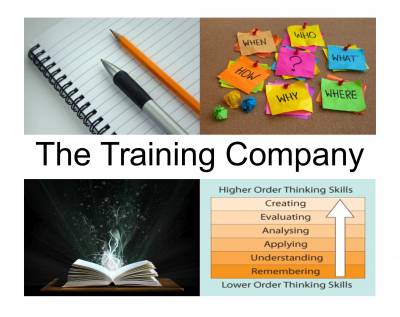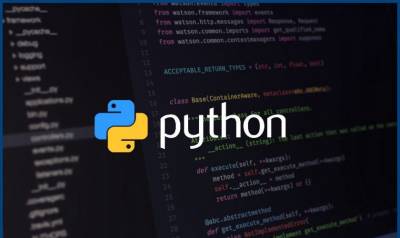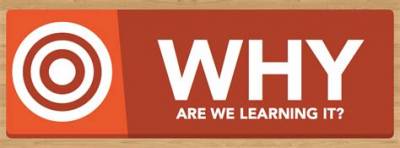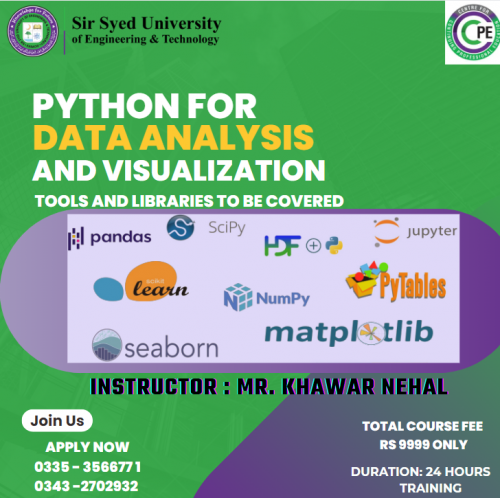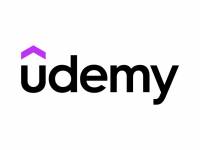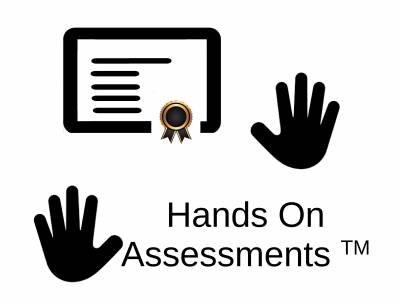This is an old revision of the document!
Table of Contents
Python Courses
Why learn Python ?
Learning Python offers numerous benefits, making it a popular choice among programmers and individuals interested in computer science. Here are some key advantages of learning Python:
1. Easy to Learn and Read: Python has a simple and readable syntax that emphasizes code readability and clarity. This makes it easier for beginners to grasp the language and for experienced programmers to write and maintain code quickly.
2. Versatility: Python is a versatile language that can be used for a wide range of applications, including web development, data analysis, scientific computing, artificial intelligence, machine learning, automation, and more. It provides extensive libraries and frameworks specific to various domains.
3. Large and Active Community: Python has a large and active community of developers who contribute to its growth, provide support, and create useful libraries and frameworks. This active community ensures that Python stays relevant and up-to-date with the latest trends in technology.
4. Extensive Libraries and Frameworks: Python offers a rich ecosystem of libraries and frameworks, such as NumPy, pandas, TensorFlow, Django, Flask, and many more. These libraries and frameworks provide pre-built functions and tools, saving time and effort in development.
5. Cross-Platform Compatibility: Python is a cross-platform language, meaning it can run on various operating systems such as Windows, macOS, Linux, and even mobile platforms. This makes it highly accessible and convenient for developers to write code that can be deployed across different environments.
6. Strong Support for Data Analysis and Visualization: Python has become one of the leading languages for data analysis and scientific computing. Libraries like NumPy, pandas, and Matplotlib provide powerful tools for handling and visualizing data, making it ideal for data scientists and researchers.
7. Career Opportunities: Python's popularity has resulted in a high demand for Python developers across industries. Learning Python opens up various career opportunities, whether you're interested in web development, data science, machine learning, or software engineering.
8. Integration Capabilities: Python can easily integrate with other programming languages such as C, C++, Java, and more. This allows developers to leverage existing code and libraries from other languages and build upon them using Python.
9. Increased Productivity: Python's simplicity and extensive libraries enable developers to write code more efficiently and quickly. Its focus on readability and minimalistic syntax reduces the time required for coding, debugging, and maintenance.
10. Open Source and Free: Python is an open-source language, which means it is freely available and can be used, modified, and distributed by anyone. This open-source nature encourages collaboration and fosters innovation within the Python community.
These benefits, among others, make Python an excellent choice for beginners and experienced programmers alike, empowering them to develop a wide range of applications efficiently and effectively.
Types of people who can benefit from learning python.
Python is a versatile programming language that can be beneficial for various types of people. Here are some categories of individuals who may find learning Python advantageous:
1. Beginners: Python is often recommended as a beginner-friendly programming language. Its clean syntax and readability make it easier to understand and learn the fundamentals of programming.
2. Students: Python is widely used in educational institutions to teach programming concepts. It can be valuable for students studying computer science, data science, artificial intelligence, or any field that involves coding.
3. Software Developers: Python offers a robust set of libraries and frameworks that can accelerate the development process. It is suitable for building web applications, desktop applications, scientific software, and more.
4. Data Scientists: Python has become the de facto language for data analysis and machine learning. Popular libraries like NumPy, Pandas, and scikit-learn provide powerful tools for data manipulation, analysis, and modeling.
5. Researchers: Python's simplicity and extensive library ecosystem make it a popular choice for researchers in various domains. It can be used for data analysis, prototyping, simulation, and visualization, among other research tasks.
6. Web Developers: Python frameworks such as Django and Flask enable the development of dynamic and scalable web applications. Python's ease of use and wide adoption make it a valuable skill for web developers.
7. System Administrators: Python is commonly used in scripting and automation tasks for system administration. It can help automate repetitive tasks, manage infrastructure, and interact with APIs.
8. Entrepreneurs: Python's simplicity and versatility make it an excellent choice for entrepreneurs who want to quickly develop prototypes or build minimum viable products (MVPs). It allows for rapid development and iteration.
9. Scientists and Engineers: Python's rich scientific computing ecosystem, including libraries like SciPy and Matplotlib, make it suitable for scientific computing, simulations, and data visualization.
10. Anyone interested in programming: Python's user-friendly nature and vast community support make it an appealing language for anyone interested in learning programming, irrespective of their background or profession.
Ultimately, Python's broad range of applications and its user-friendly syntax make it a valuable language for a wide variety of people, from beginners to seasoned professionals.
Python courses, covering both introductory and more advanced topics relevant to Python-related job roles:
Course 1: Introduction to Python Programming
Class 1: Introduction to Programming and Python
What is programming?
Setting up the development environment
Command Line Python ( joe editor )
Pulsar editor
Basic syntax and data types
Class 2: Control Structures and Functions
Number & Booleans, strings
Conditional statements (if, else, elif)
IF Conditional statement
IF-ELSE
NESTED IF
Loops (for, while)
WHILE Statement
Functions and their importance
FOR statements
BREAK and CONTINUE statements
Class 3: Data Structures
Python Objects
Arithmetic operators
Comparison Operators
Assignment Operators
Operator’s precedence and associativity
Strings and string manipulation
Basic data structure in python
String object basics and inbuilt methods
List: Object, methods, comprehensions
Tuple: Object, methods, comprehensions
Sets: Object, methods, comprehensions
Dictionary: Object, methods, comprehensions
Class 4: File Handling and Error Handling
Lists, tuples, and dictionaries
List comprehensions
Reading and writing files
Handling exceptions
Debugging techniques
Class 5 Functions
Functions basics
Function Parameter passing
Iterators
Generator functions
Lambda functions
Map, reduce, filter functions
Class 6 File Management
Working with files
Reading and writing files
Buffered read and write
Other file methods
Logging & Debugger
Modules and import statements
Class 7 Exception and error handling
Working with files
Reading and writing files
Buffered read and write
Other file methods
Logging & Debugger
Modules and import statements
Course 2: Python for Data Analysis and Visualization
Class 1: Introduction to Data Analysis
Python review of basics for those who may be new or need a refresh.
Class 2: Data Cleaning and Preprocessing
Data analysis process
Handling missing data
Data transformation and normalization
NumPy Introduction
Array – Data Structure
Core Numpy functions
Matrix Operations
Class 3: Pandas
Pandas introduction
Pandas functions
Data Frame and Series – Data Structure
Data munging with Pandas
Imputation and outlier analysis
Class 4 OOP Concepts
Object Oriented Programming OOP basic concepts.
Creating classes
Inheritance
Polymorphism
Encapsulation and Abstraction
Decorator
Class methods and static methods
Special (magic/dunder) methods
Property decorators - getters, setters, and deletes
Class 4: Plotly
Plotly Introduction
Basic plots (bar, line, scatter)
Customizing plots for better visualization
Heatmaps, histograms, and box plots
Interactive visualizations with Plotly
Class 5 PyTables
PyTables intro
Class 6 Introduction to Machine Learning
Scikit-learn and its components
Supervised vs. unsupervised learning
Class 7: SciPy and Machine Learning concepts
SciPy introduction
Getting started
Constants
Optimizers
Sparse data
Graphs
Spatial Data
Regression and classification algorithms
Model evaluation and metrics
Matlab arrays
Interpolation
Significance Tests
Class 8 : TensorFlow
TensorFlow introduction
Course 3: Web Development with Python
- Week 1-2: HTML and CSS Basics
Introduction to HTML structure
Styling with CSS
- Week 3-4: Backend Development with Flask
Setting up a Flask application
Routing and handling requests
- Week 5-6: Databases and SQLAlchemy
Working with SQLite or PostgreSQL
Database models and relationships
- Week 7-8: Frontend Development with Jinja2 and JavaScript
Templating with Jinja2
Introduction to JavaScript and DOM manipulation
- Week 9-10: Deployment and Full-Stack Concepts
Deploying Flask applications
Overview of full-stack development
Flask application
Open link flask
App routing flask
URL building flask
Http methods flask
Templates flask
Course 4: Python for Automation and Scripting
Week 1-2: Introduction to Automation and Scripting
Why automation is important
Automating tasks with Python
Application programming interface
What is web API
Difference b/w API and web API
Rest and soap architecture
Restful services
Week 3-4: Working with Files and Directories
File manipulation and organization
Batch renaming and file operations
Week 5-6: Automating Data Manipulation and Reporting
Using libraries like pandas to process data
Generating automated reports
Week 7-8: Web Scraping and API Interaction
Fetching data from websites
Interacting with web APIs
Course 5: Advanced Python Concepts and Best Practices
Week 1-2: Object-Oriented Programming in Python
- Classes and objects
- Inheritance and polymorphism
Week 3-4: Advanced Python Features
- Decorators and context managers
- Generators and iterators
Week 5-6: Testing and Debugging
- Unit testing with pytest
- Debugging strategies and tools
Week 7-8: Performance Optimization
- Profiling and identifying bottlenecks
- Strategies for optimizing code
Week 9-10: Collaborative Development and Version Control
- Using Git for version control
- Collaborating on projects using GitHub
Python Project
Setting up Project Environment and folders
Working with Git Repository
Requirements and Project Documents
Hands-on Python Project coding
Deploying the Application
These courses cover a range of skills relevant to Python-related job roles, including software development, data analysis, web development, automation, and more.
Each course is designed for a total of 24 hours of classes.
8 Classes of 3 Hours each for weekdays.
6 Classes of 4 hours each for weekends.
Duration: 24 Hours.
Slots available.
3 Times a week.
Monday, Wednesday, Friday : 10:00 - 13:00
Monday, Wednesday, Friday : 18:00 - 21:00
Tuesday, Thursday, Saturday : 10:00 - 13:00
Tuesday, Thursday, Saturday : 18:00 - 21:00
2 Times a week.
Saturday, Sunday : 14:00 - 18:00
Physical Class Location :
Block 8 Federal B. Area, Karachi.
Near NIPA Karachi in Sir Syed University. SSUET.
Other locations shall become available as they get contracted.
Institutes are welcome to discuss venue availability for physical classes for this course.
We are open to partnering with institutes globally for offering this and other courses via video conferencing.
Video based course :
Some of the courses' topics are are now available in this course on Udemy.
Free Udemy coupon
https://www.udemy.com/course/python-course-1/?couponCode=F-P-68694A6AE5CC7D3
F-P-68694A6AE5CC7D3
Validity 30 days
Starts 10/03/2023 2:01 AM PDT (GMT -7)
Expires 11/03/2023 2:01 AM PDT (GMT -7)
Discount coupon for the python course
Unlimited number of coupons but limited number of days.
4 days
Starts 09/11/2023 1:52 PM PDT (GMT -7)
Expires 09/16/2023 1:52 PM PDT (GMT -7)
Assessment of capability and examination by :
Information about certificates and badges.
Course fee : 0.55 LTC for each course ( USD 36 , PKR 10,000 ) per course.
To register for the course contact : +92 343 270 2932 ( whatsapp ) also +92 331 2036 422
Discounts available for registrations as a group until 30 October 2023.
| Number of students | Percentage discount | Notes |
|---|---|---|
| 1 | 0% | Available for physical classes and video conferencing virtual classes |
| 2 | 10% | Available for physical classes and video conferencing virtual classes |
| 3 | 20% | Available for physical classes and video conferencing virtual classes |
| 4 | 30% | Available for physical classes and video conferencing virtual classes |
| 5 | 40% | Available for physical classes and video conferencing virtual classes |
| 6 | 50% | Only applies for video conferencing virtual classrooms |
| 7 | 60% | Only applies for video conferencing virtual classrooms |
| 8 | 70% | Only applies for video conferencing virtual classrooms |
| 9 | 80% | Only applies for video conferencing virtual classrooms |
| 10+ | 90% | Only applies for video conferencing virtual classrooms |
© Applied Technology Research Center 2023. All Rights Reserved.
All content included in or made available through this page, such as text, graphics, logos, icons, images, sounds, music, digital downloads, data compilation, software, and documents is the exclusive property of Applied Technology Research Center or its content suppliers and is protected by the various applicable trade dress, copyright, trademark, patent, and other intellectual property and unfair competition laws in the Pakistan and internationally. All rights not expressly granted to you via these terms are reserved and retained by Applied Technology Research Center or its licensors, suppliers, publishers, rightsholders, or other content providers.

